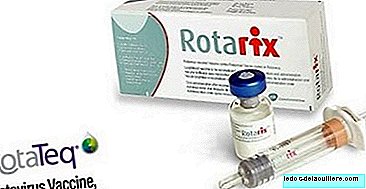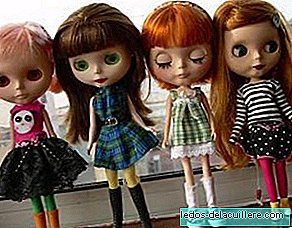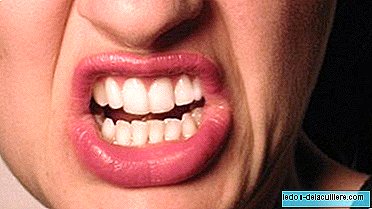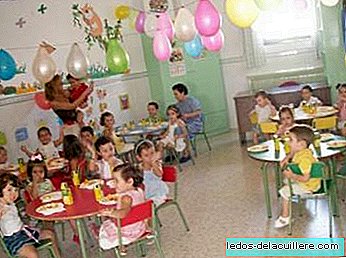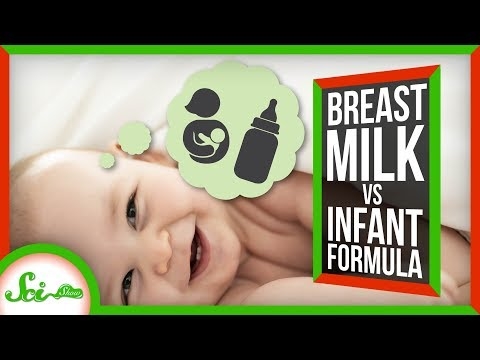The "Archives of Disease in Childhood" magazine publishes a very interesting article by Professor Stewart Forsyth, a Scottish pediatrician, who thoroughly analyzes the history and the failure of the Breast Milk Substitute Code.
The publication of the Code in 1981 was supposed to improve the feeding of children and babies around the world, promoting breastfeeding and controlling abusive or deceptive campaigns of artificial milk producers, which, in previous years, had it has been achieved that, in the collective mentality and medical consultations, artificial milk was imposed as normal and the techniques and advantages of natural breastfeeding were unknown.
Since then the application of this Code that should control the excesses of direct and indirect advertising It has been a failure and a continuous source of conflicts, having failed in its objective of ensuring that artificial milk does not compete with the best food for babies and children.
If WHO has warned a few days ago that one and a half million lives of children under five could be saved if an adequate number of them were able to receive breastfeeding from the first hour of life, exclusively breast milk for six months and continue to suck for at least two years receiving adequate complementary nutrition is that something is failing and failing very seriously. And this ruling kills 1.5 million children every year.
AdvertisingIn the more developed countries, although it is not allowed to publicize starter milk openly there is still a great permissiveness with the direct advertising of continuation milk, which promise all kinds of unprovable benefits, with indirect advertising through gifts or campaigns and with the use of images and messages too promising. They continue to confirm that samples of milk are given in pediatric consultations.
Every year many violations of the Code are discovered by associations such as Baby Milk Action, which denounces the labeling and promotion of these products. On their page they are collected campaigns to alert consumers and get producers to behave as signed.
I really believe that artificial milk is something very valuable, which gives life to children who cannot be breastfed, and that greater control over advertising, advice, distribution and sale would be necessary to guarantee them the best possible nutrition.
Although the problem also influences the more developed countries, since breastfeeding here also has a protective effect on many diseases, in the less favored countries the problem is considerably more serious. The use and abuse of artificial milk and violations of Code by producers and manufacturers has a devastating effect.
Emergencies, conflicts, lack of access to drinking water, hygiene and resources make giving artificial milk to children in less favored countries a true condemnation of malnutrition and disease. Milk cannot normally be given with hygiene guarantees and mothers end up quickly depending on it once it is introduced, which causes a total dependence on the product for the child's survival, which is not always possible due to lack of resources. In addition, the weaker the control system in the country, the easier it is to skip the Code, give away milk or advertise it in a way that can be misleading.
Health protection organizations such as UNICEF and WHO warn when there are emergencies of how important it is not to give away formula milk, as it ends up creating a greater problem than what is thought to be solved. That is why maximum control of milk items was requested in recent emergencies such as those in Gaza and Haiti.
It is known that breast milk is the best for babies and voices begin to be heard that would indicate that perhaps artificial milk should be considered a medicine to increase control over its advertising and distribution, guaranteeing all the necessary help to mothers so they can give breast milk to their children and for that, children who must drink artificial milk, do so with greater control measures and, above all, not turning something as important as their proper nutrition into a marketing issue.
Unfortunately, every year we echo cases in which artificially marketed milk is not adequate, is contaminated or is poor in quality, cases that although scarce, can pose a serious health problem for an infant. The most serious resulted in several deaths in China recently but the issue is that the cases continue to occur, although they are less dangerous, as happened in Argentina last fall.
The point is that, in addition, with the application of the Code of Substitutes we are not only talking about increasing breastfeeding rates, but also about protect children who drink artificial milk, ensuring that the information parents and healthcare providers receive is real and true. Advertising messages cannot contain half-truths or promises because it is a matter of vital health for infants, not a chocolate. The feeding of babies is something extremely serious and everyone, whether they have breast milk or artificial milk, has the right to be protected from aggressive or misleading advertising.
In the opinion of Dr. Forsyth, the objective has been failed to ensure that the Code is effectively respected despite the fact that WHO and UNICEF worked for its drafting and are interested in its compliance.
The 11 articles of the Code represent a recommendation that deals with issues of advertising, enjoyment, information and labeling, but it has been a resounding failure and has not served its purpose, to achieve the collaboration of artificial milk producers to improve the nutrition of children of the world.
When the Breast Milk Substitute Code it was hoped that it would be a way of reaching agreements and mutual collaboration between the manufacturers of artificial milk and international organizations that ensure the health of children in the world, UNICEF and WHO, but it has not been so. In addition, as compliance is not a mandatory law but a recommendation is very complicated to ensure that no tricks are sought to circumvent or ignore it.
Professor Forsyth's idea is that the Code must be applied but above all it must be achieved that the agents involved contribute consciously, without seeking excuses or lax interpretations, to its fulfillment, therefore, and it is not something without importance or that should weigh more than business interests, the lives of millions of children may depend, in part, on this. Only in this way can it be said that the Breast Milk Substitute Code will no longer be a failure.


